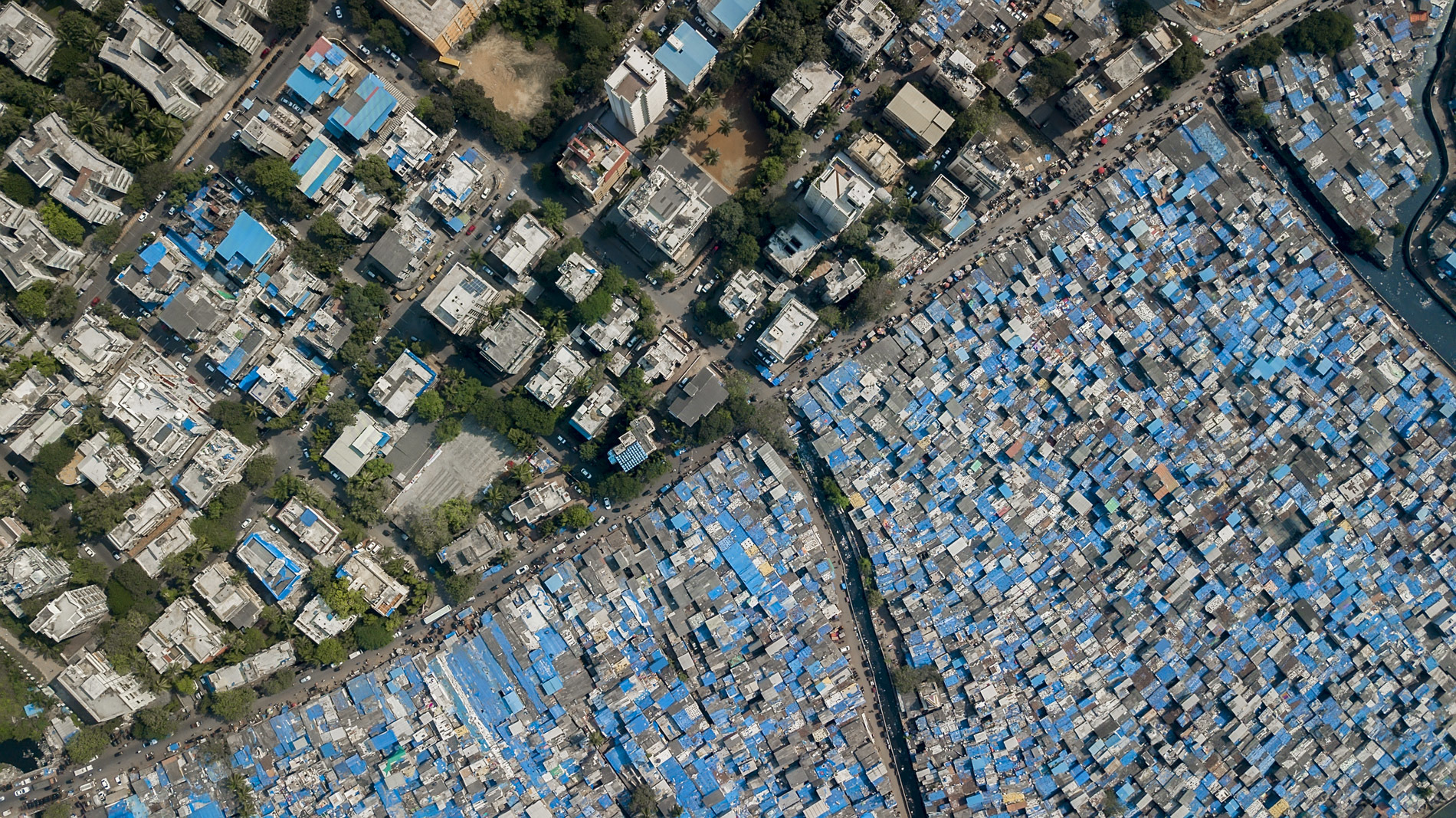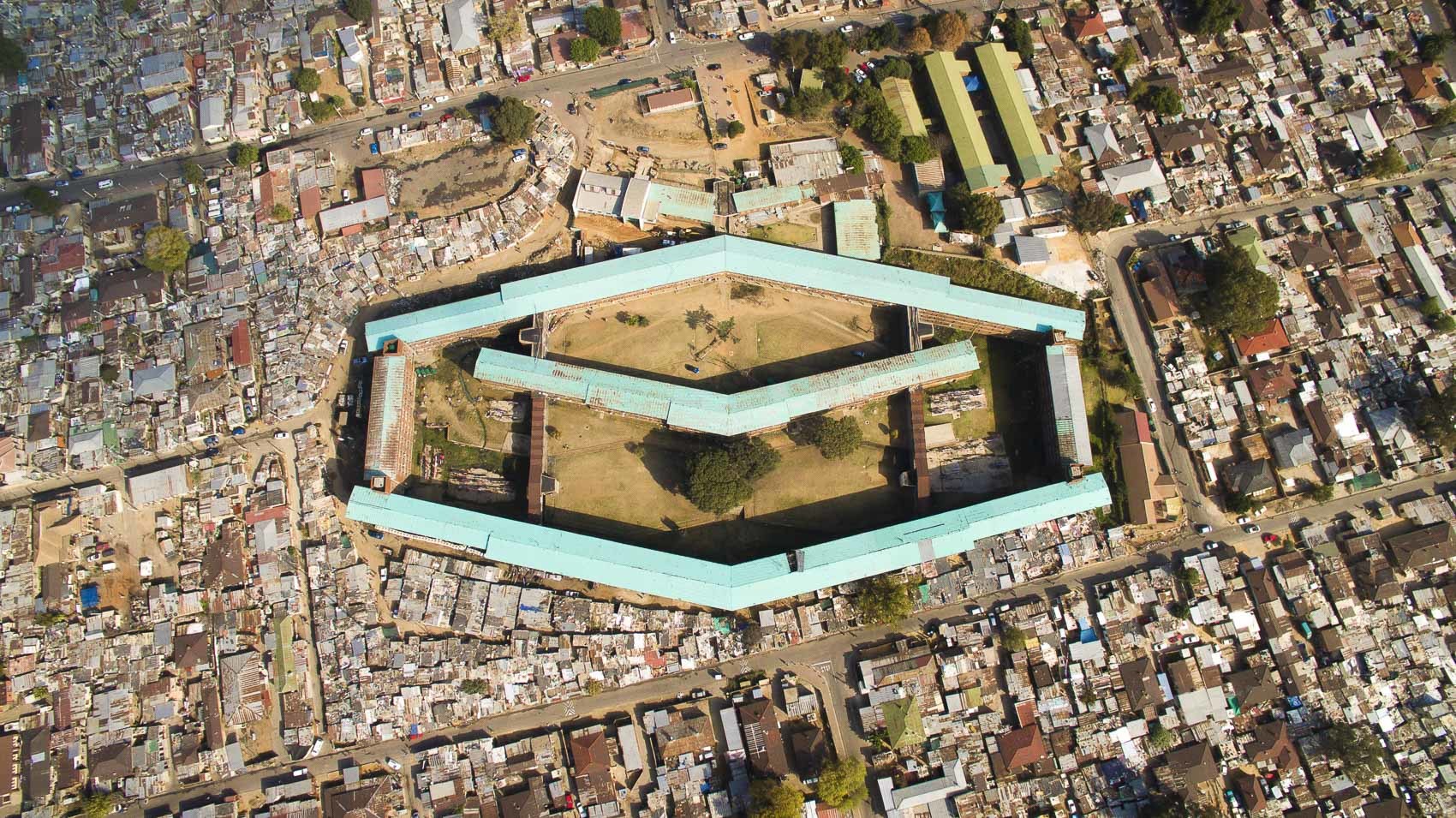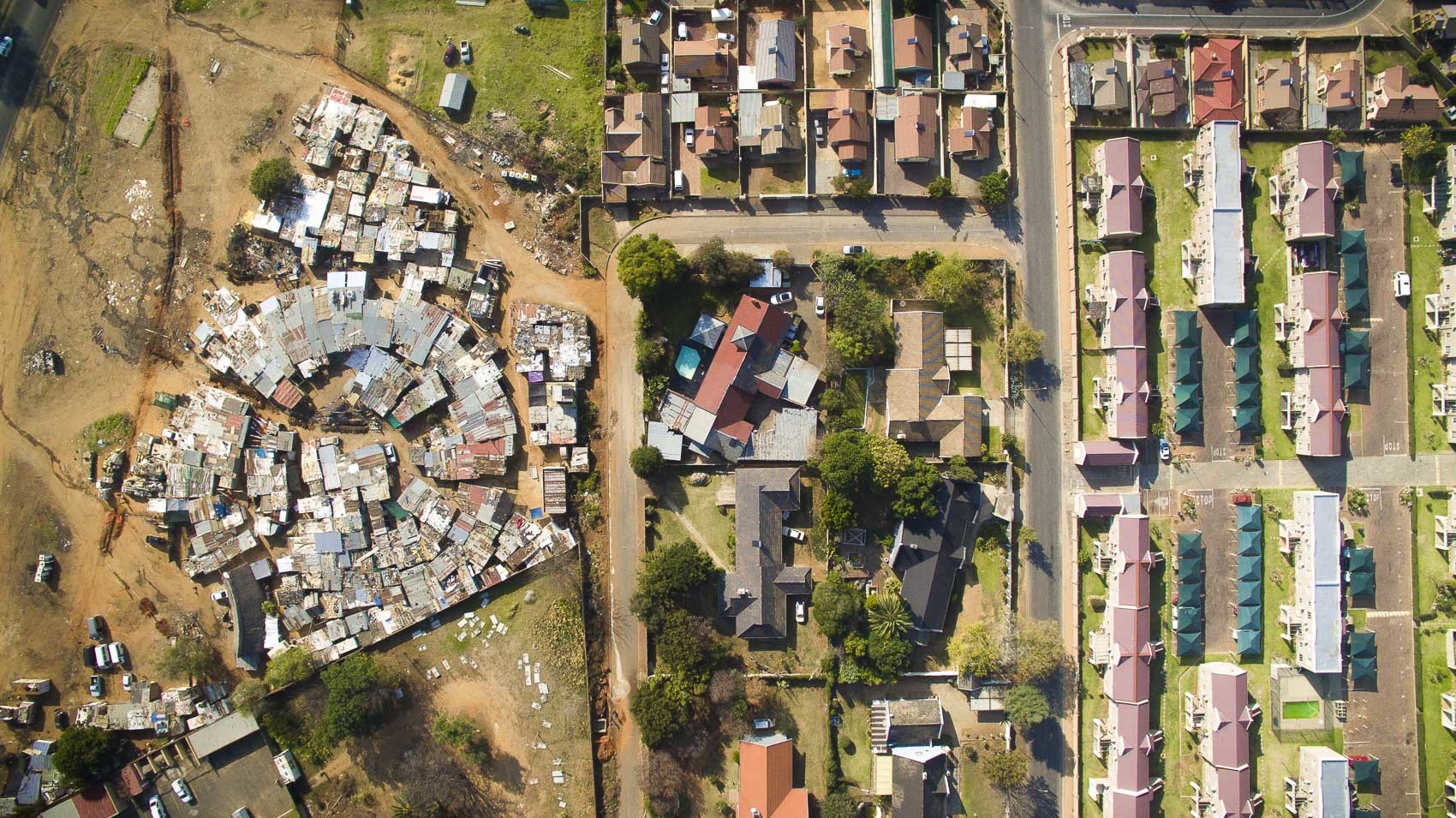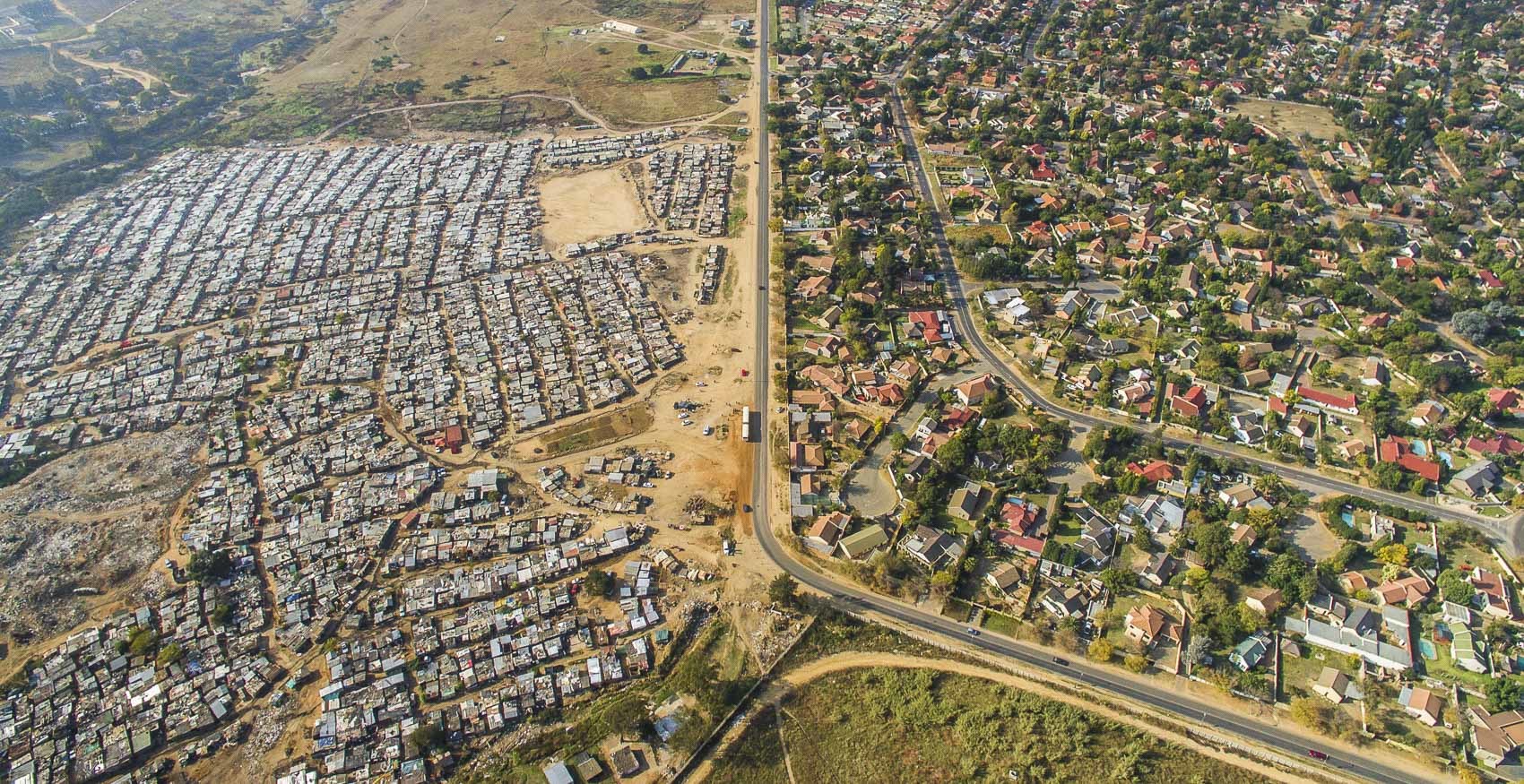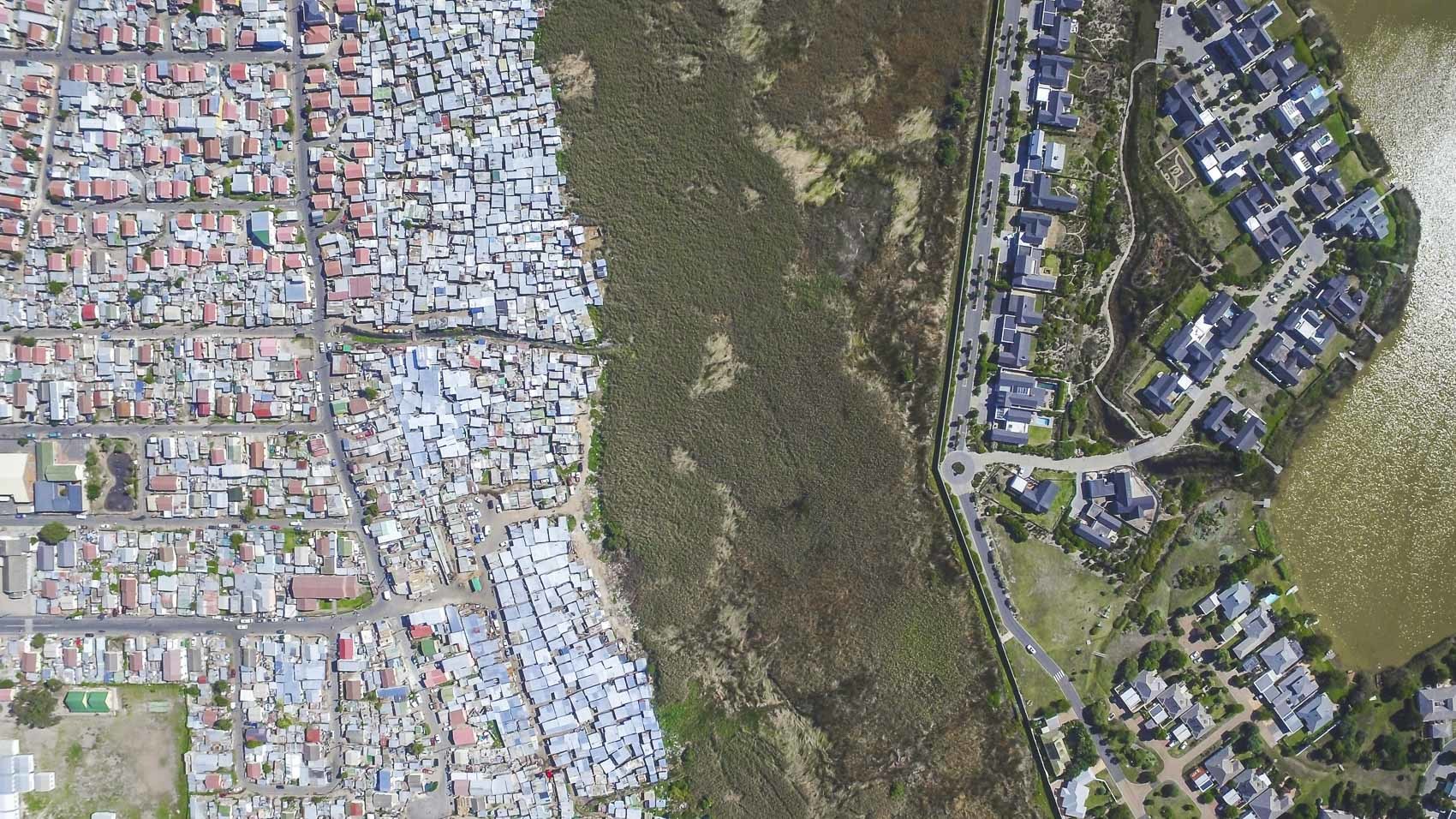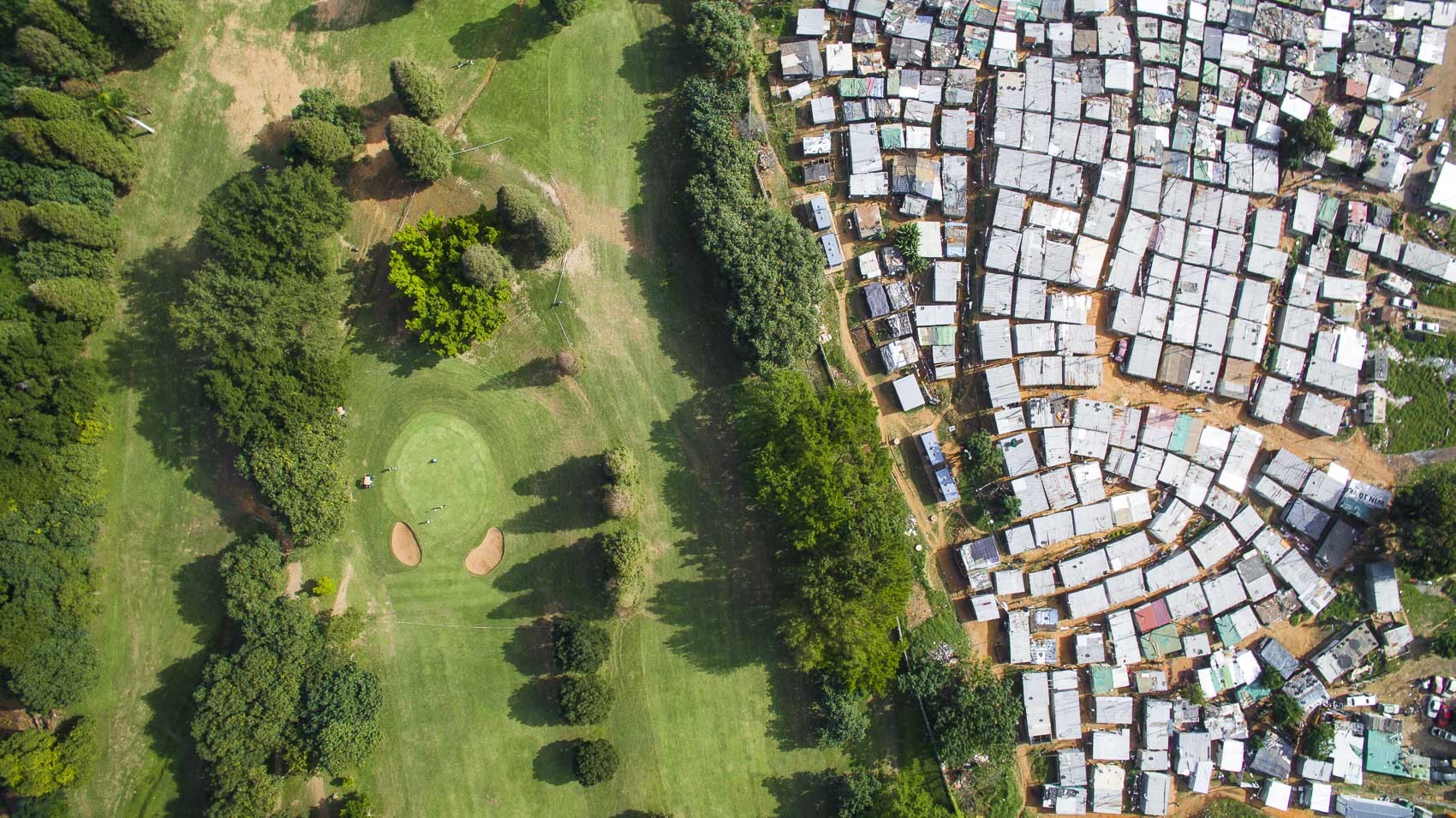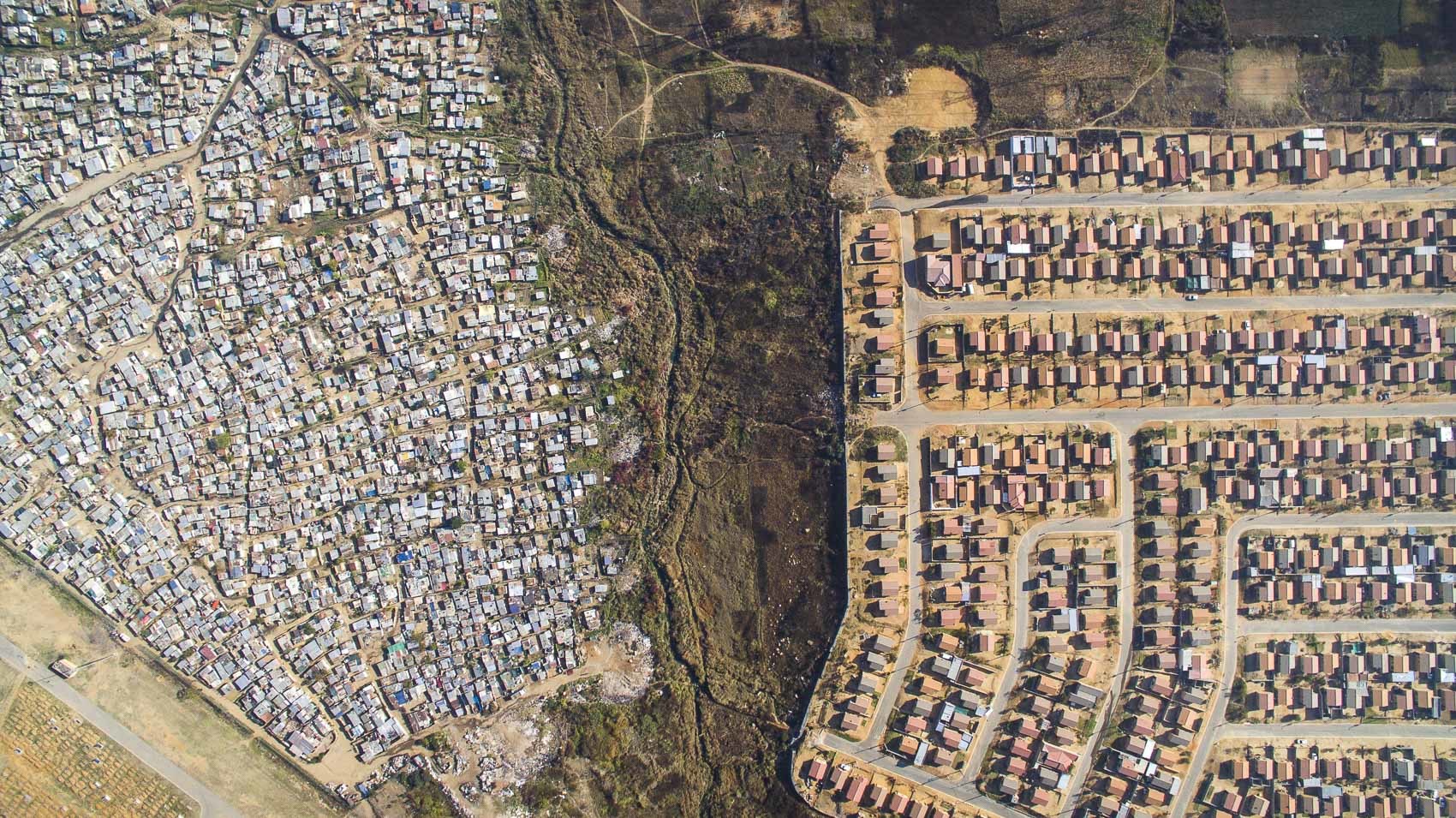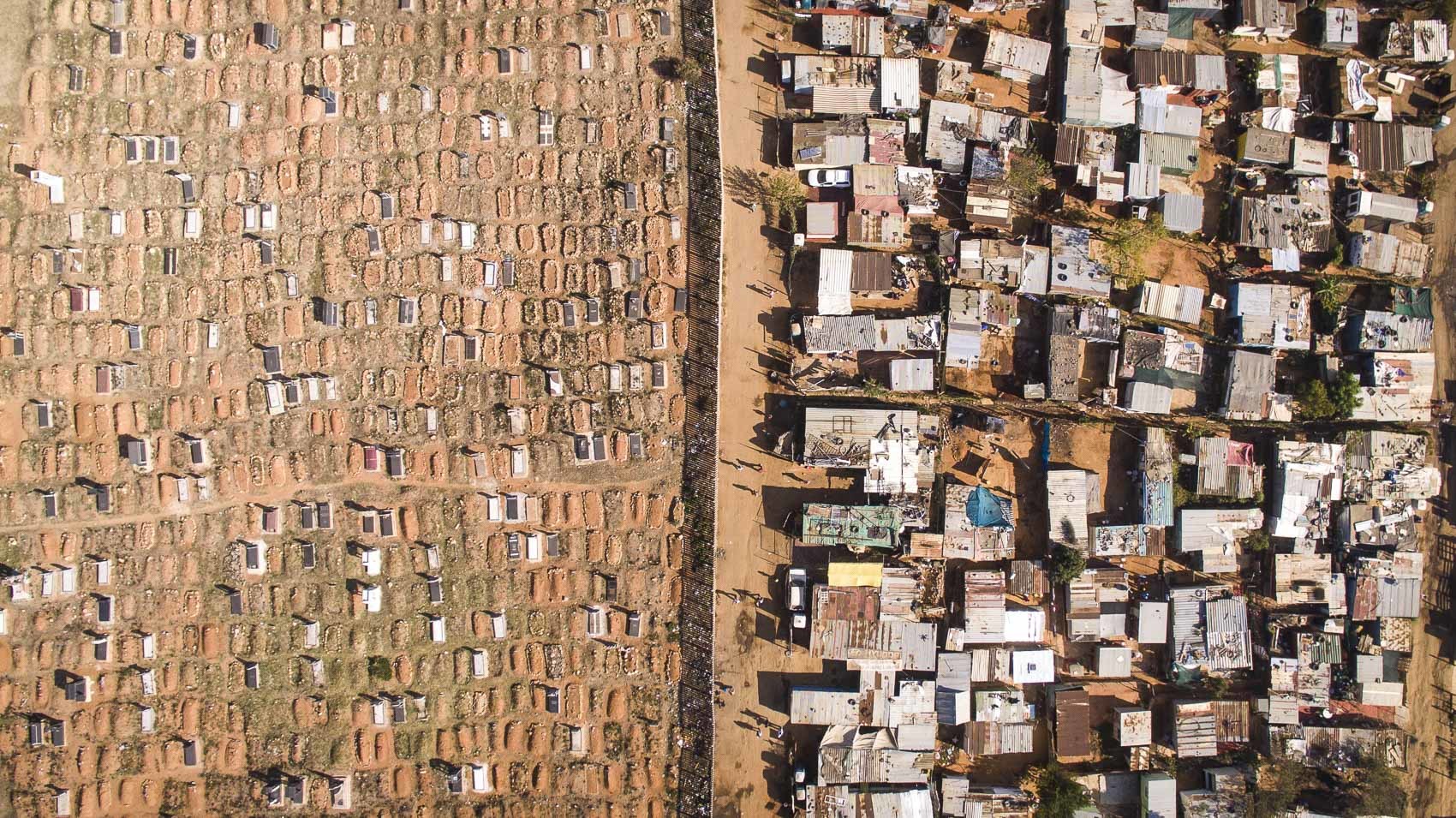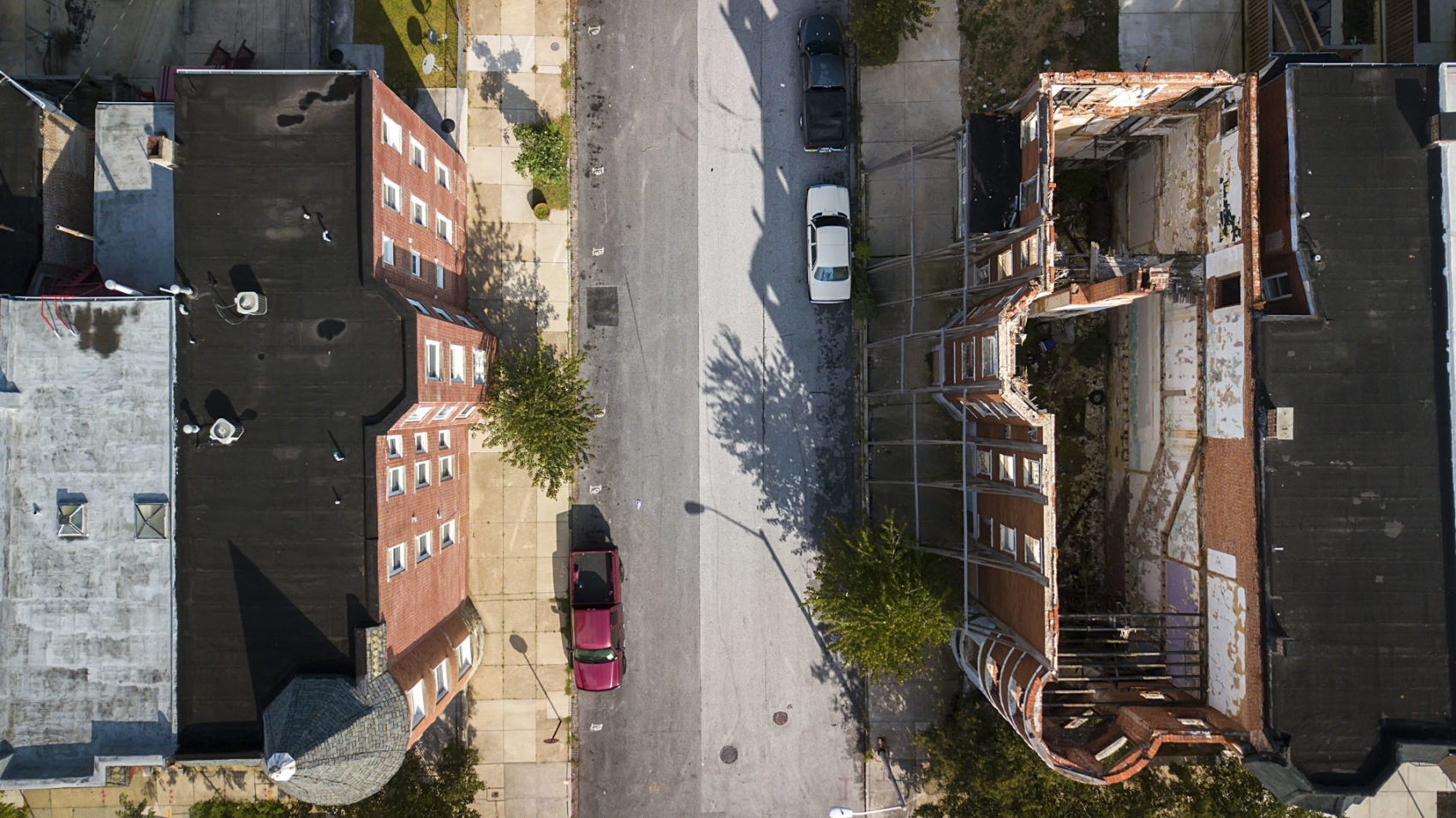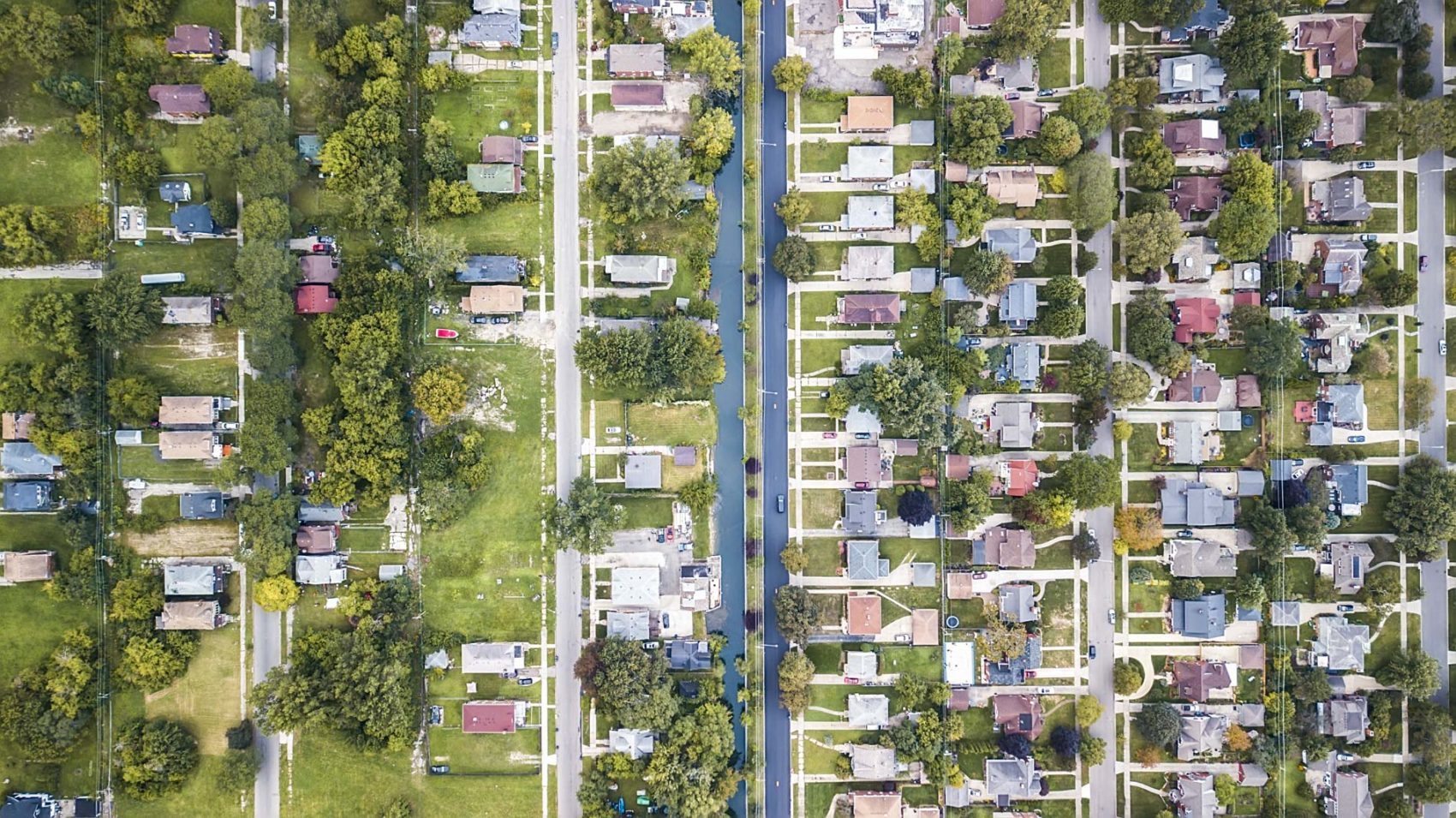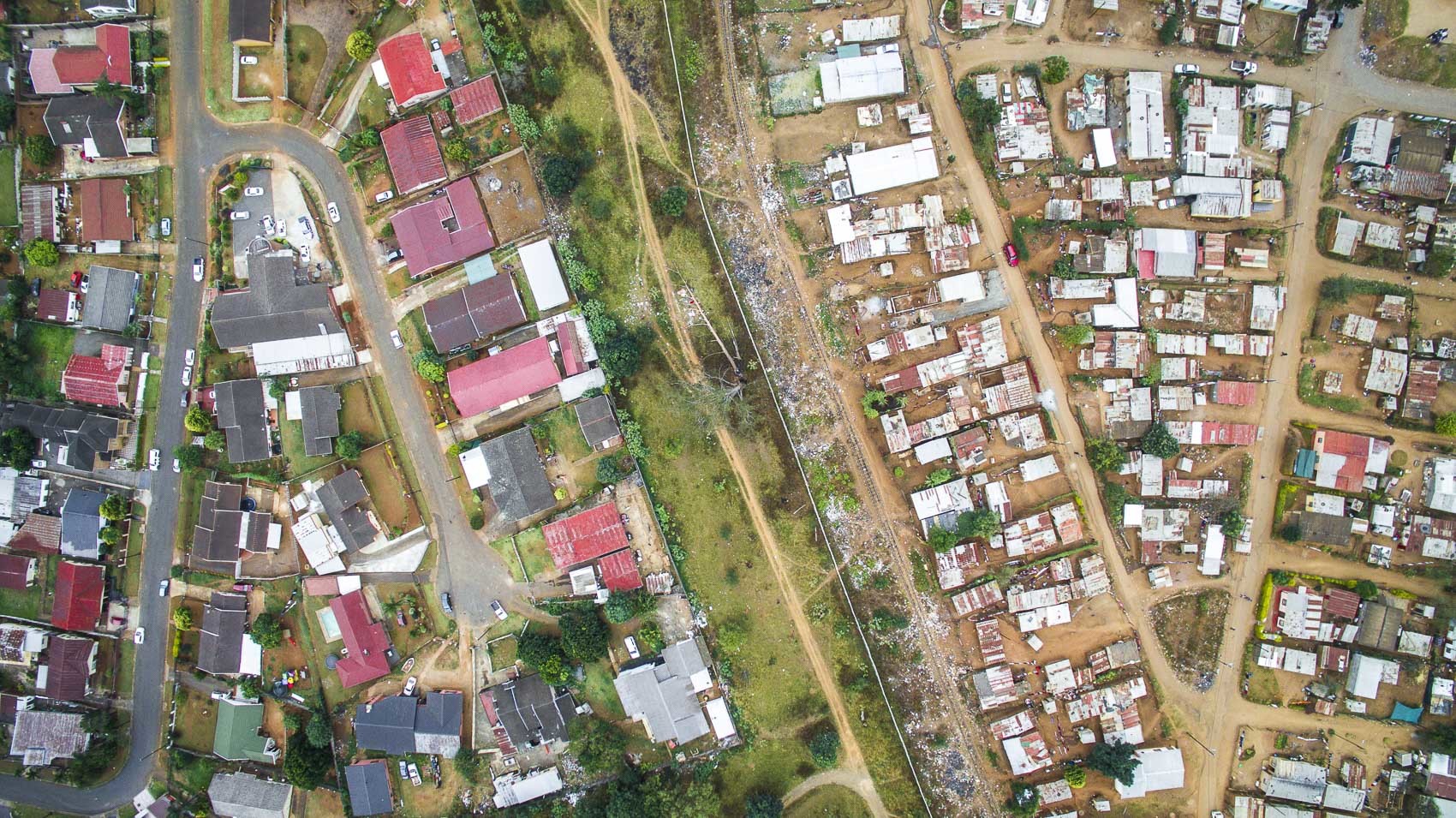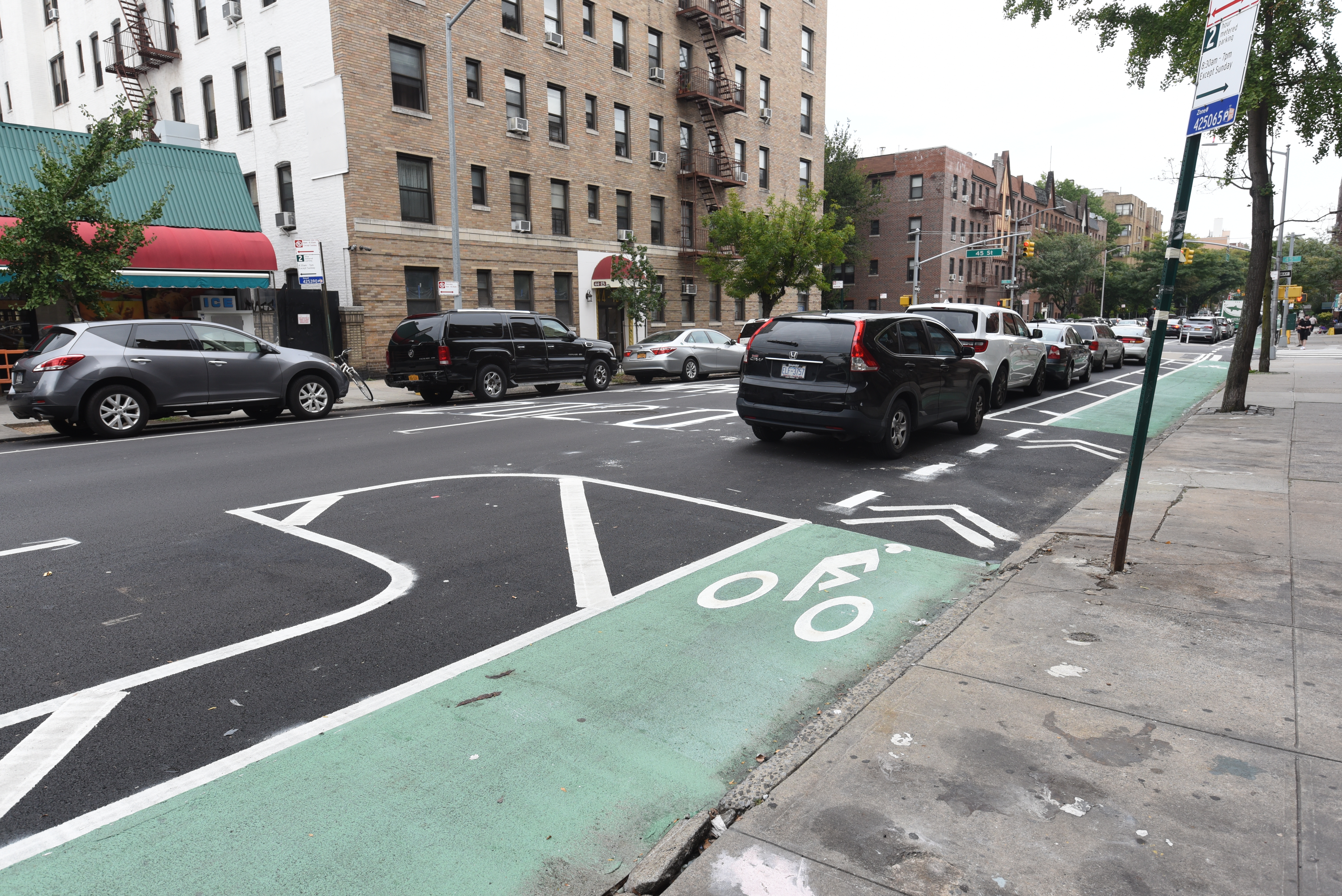Unequal Scenes is a project developed by Johnny Miller. Johnny is a journalist and photographer originally from the USA, and currently based in Cape Town, South Africa. He is using a drone to explore different areas of the world and to show income inequality.
He is using a drone because it gives a completely different perspective on the world. Johnny knows that from above the scars in our urban fabric are more visible and could provoke a sense of surprise in the viewers, but he thinks they also show: “our complicity in systematic disenfranchisement. We live within neighborhoods and participate in economies that reinforce inequality”
While raising awareness on extreme inequality, Johnny also aims that his pictures could be the starting point for a dialogue that will lead to a change. A change to bring more equity among different groups of people.
Today as we are interviewing Johnny we will learn more about Unequal Scenes, we will find out about his personal history, and he will share with us his thoughts about the issues of poverty and inequality in different areas of the planet.
First of all, would you like to introduce yourself and your personal history?
Johnny Miller: I’m 37, born in Maryland, USA but moved around quite often due to my dad’s job (he worked for NOAA – a government agency). I went to Dickinson College in Pennsylvania and graduated with a political science degree; after working in Washington DC for several years I quit, and then set off to explore a different path for my career and life.
I first picked up a camera when I was 29 years old and taught myself how to shoot stills and video. I wanted to learn photography as a sort of trade, in order to make a profession for myself and own my own business.
IN THE PHOTO: Unequal Scenes’ Aerial views of Johannesburg. Click on the pictures to see them full size. PHOTO CREDIT: Johnny Miller – Unequal Scenes
What is the idea behind Unequal Scenes? What do you want to accomplish with this project?
JM: When I moved to South Africa (6 years ago, to study at University of Cape Town for a master’s degree in Anthropology), inequality was impossible to ignore. From the minute you land in Cape Town, you are surrounded by shacks. Literally, tin shacks surround the airport, which you have to drive past for about 10 minutes, until you reach the more affluent suburbs where privileged people (myself included) live. This is the status quo in Cape Town, in South Africa, and in many parts of the world – but that’s a status quo that I’m not OK with. I thought it was strange how easily it was to become habituated to inequality: to drive past these shacks every day, but not really think about it, or do anything about it. So I decided to take my drone and focus on the problem, to try changing people’s perspective, literally, with an aerial view of the problem as I saw it. And one day in April 2016, I did that – and the project was born.
Inequalities in our social fabric are oftentimes hidden, and hard to see from ground level. Visual barriers, including the structures themselves, prevent us from seeing the incredible contrasts that exist side by side in our cities.
IN THE PHOTO: Johannesbourg: the contrast between the settlement of Kya Sands made of sheds and the middle class suburb of Bloubosrand. PHOTO CREDIT: Johnny Miller – Unequal Scenes
What technology do you use to take this kind of pictures? Why do you prefer the aerial view?
JM: I love aerial photography because it allows us an emotional distance to really jump in and spend a lot of time looking at the photos. When I was a kid I used to spend hours looking at maps, seeing all the place names and borders on the page. It’s the same way with these drone photos – you can almost lose yourself in them. They allow us the distance to really reflect on the fact that we have allowed our societies to become so unequal.
I’ve thought a lot about how using the drone technology is an integral part of the process for this project. How far does the drone need to be from the ground in order to reach an “ethical” altitude? Who should have access to the airspace and to the drone technology? Are drone images fundamentally different than a Google Earth image or a printed map?
Governments have traditionally reserved the airspace as the domain of the wealthy and powerful, which makes flying a drone an act of defiance. It’s an act of image-making which is truly democratic and populist, which is why I think drones are so important (as a technology).
Traditional portraiture and photography on the ground rarely allows for that sort of thoughts and contemplation. This is really what I intended and desired to happen – that the photos would spark conversations, and through these conversations we could begin to understand the scope of the problem, and through that understanding, we could develop solutions.
If the images provoke uncomfortable feelings of fear, despair, or an unsettling realization of complicity – good. They are intended to.
IN THE PHOTO: The contrast between the Masiphumelele community on the left and the area of Lake Michelle on the right. Read the full story about this place in the link on the photo credit. PHOTO CREDIT: Johnny Miller – Unequal Scenes
Which countries have you visited? Which “Unequal Scenes” have moved you the most?
JM: Six countries so far – South Africa, Tanzania, Kenya, India, Mexico, and the USA.
The images that I find the most powerful are when the camera is looking straight down – what’s known as “nadir view”, looking at the actual borders between rich and poor. Sometimes this is a fence, sometimes a road, or a wetlands – with small shacks or poor houses on one side, and larger houses or mansions on the other. Whatever it is about the composition of those photographs, they are extremely powerful to people. I think the images make inequality relevant – people can see themselves reflected in the images, and it’s deeply unsettling.
The South African images to me are the most impactful, and it is also home to me. So, I probably identify those are the most impactful for me.
IN THE PHOTO: Papwa Sewgolum Golf Course in Durban, South Africa, right next to informal settlements. Read the full story about this place in the link on the photo credit.
PHOTO CREDIT: Johnny Miller – Unequal Scenes
What do you think about the global issue of poverty? Is there a way for a more sustainable growth?
JM: There are sort of two schools of thought on this: ending poverty, and ending inequality. These are related but not the same. “Ending poverty” sounds good on paper, and oftentimes the best way people have thought to do this is through economic stimulus and growth. There are good things about this model, and bad things about this model, but one thing is for sure, it seems to have exacerbated inequality. As the richest 1% get super, super rich, the lower classes may be lifted out of poverty but what does that mean? Living on $5/day? We’ve got to change our thinking on that and make wealth more fairly distributed, otherwise I fear we’re going to end up with a dual class society, the literal haves and the have nots. And I don’t want to see that happen.
IN THE PHOTO: Vusimuzi Mooifontein Cemetary in Johannesburg. Click on the pictures to see them full size. Full story about this place in the link on the photo credit. PHOTO CREDIT: Johnny Miller – Unequal Scenes
Are you working on other projects as well?
JM: Yes, I’ve founded and am running an NGO called africanDRONE, I am managing Unequal Scenes, which is ongoing, and I have several new photo projects that will come out soon.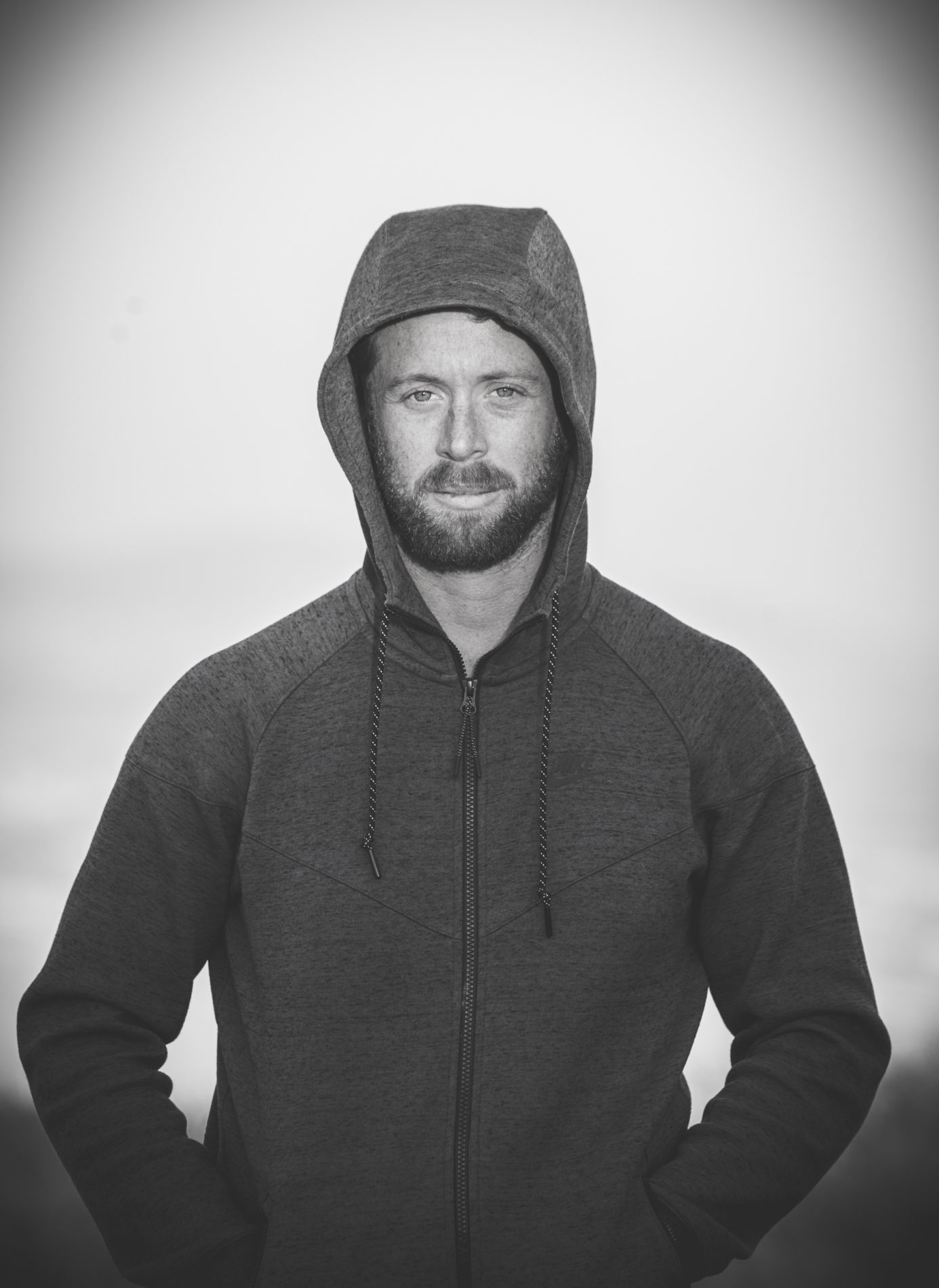
IN THE PHOTO: Johnny Miller. PHOTO CREDIT: Johnny Miller – Unequal Scenes
Where is the next trip for Unequal Scenes going to be?
JM: I would like to re-visit India and take portraits, but aside from this; Brazil.
You can follow Johnny Miller and Unequal Scenes on: Twitter, Instagram, Facebook.


